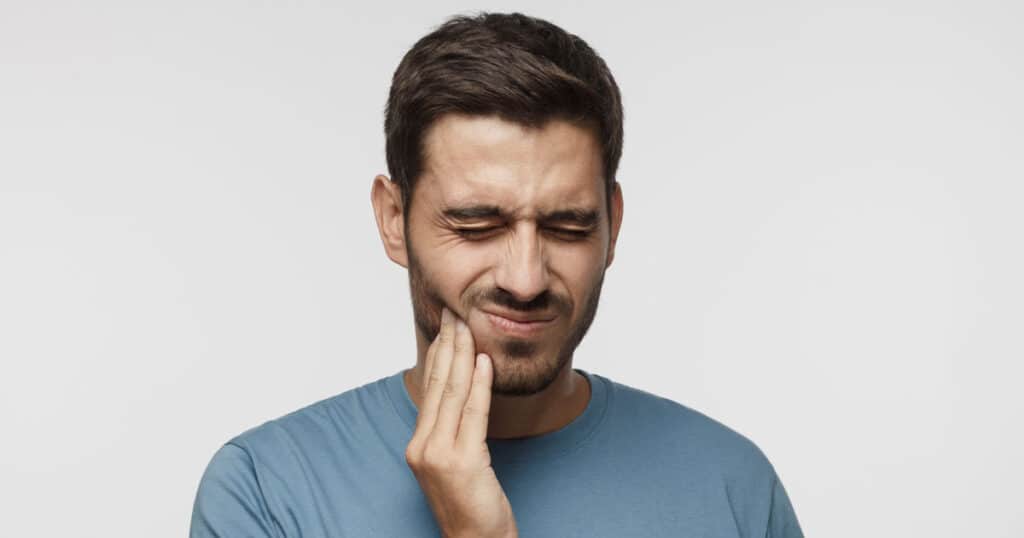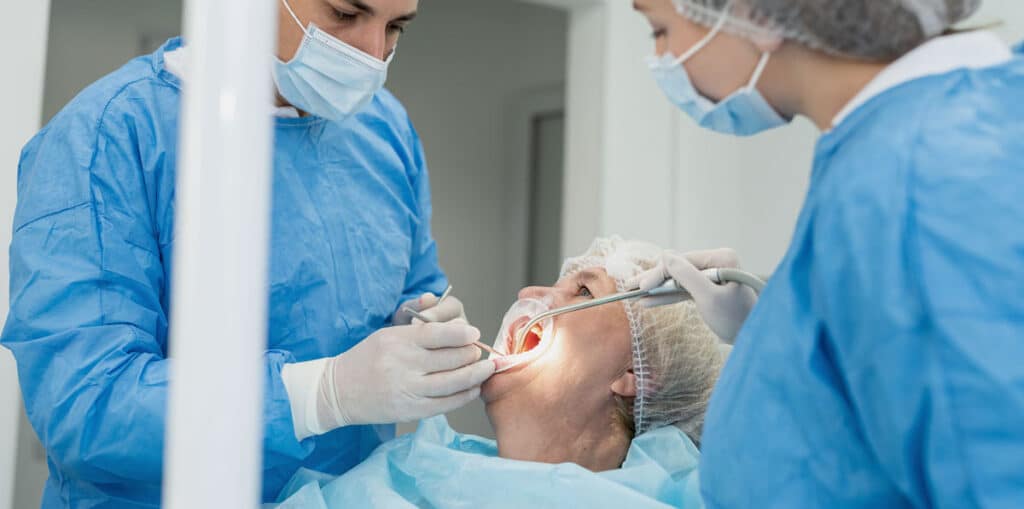Maintaining healthy teeth and gums is crucial for overall health and confidence. Visiting a dental hygienist Fulham regularly is one of the most effective ways to nurture good oral health.
A dental hygienist can help prevent gum disease, treat existing oral health issues, and offer tailored advice to help you achieve a confident smile. For new patients or those who are nervous patients, understanding what a hygiene appointment involves can make visiting a Fulham practice a stress-free experience.
Regular hygiene visits form the foundation of good oral health for all ages, ensuring teeth remain strong and gums are healthy.
Understanding the role of a dental hygienist
What a dental hygienist does
A dental hygienist focuses on preventative dental care, helping patients maintain oral hygiene and prevent further damage. They carry out professional cleaning, remove biofilm and plaque, and offer guidance on daily oral hygiene practices.
Many patients are surprised at the extent of a dental hygiene treatment, which can include fluoride treatments, guided biofilm therapy, and advice on interdental brushes. In addition, a hygienist can provide guidance for patients with dental implants or those undergoing orthodontic treatment, ensuring these treatments do not compromise overall gum health.
At a Fulham dental clinic, hygienists work closely with the team to ensure all aspects of dental care are covered, from maintaining oral health to supporting advanced treatments.
Difference between a hygienist and a dentist in Fulham
The role of a dentist is to diagnose and treat dental conditions. A hygienist is responsible for removing plaque, preventing tooth decay, and maintaining patients’ gum health. They also provide tailored advice to help patients maintain healthy teeth between check-ups and hygiene appointments.
A hygienist can identify early signs of gum disease or tooth decay, which a patient may not notice at home. The hygienist and dentists at a dental practice often collaborate to offer comprehensive dental care, including treatments for tooth loss, dental implants, and orthodontic treatment such as Invisalign.
This partnership ensures patients receive holistic care that prioritises both current oral health and long-term outcomes.

Preventing gum disease
Early signs of gum disease
Symptoms of gum disease include swollen or bleeding gums, bad breath, and receding gums, but it can also develop silently. Early detection is essential as, if left untreated, gum disease can lead to tooth loss, further damage, and systemic health problems such as cardiovascular disease.
During a hygiene visit, a dental hygienist can identify early signs and provide treatment to prevent gum disease from progressing. The hygienist may recommend treatments ranging from professional cleaning to more advanced interventions for severe cases, helping patients maintain healthy teeth and gums.
How hygienist visits reduce risk
Regular hygiene visits are essential for preventing gum disease. A hygienist removes plaque and tartar that daily brushing cannot, ensuring gums stay healthy. Preventing gum disease also supports overall well-being, as untreated oral infections can affect the entire body.
A Fulham dental clinic offers a friendly team and a comprehensive approach to oral health. Hygienists provide personalised care plans, including guidance on brushing techniques, flossing, interdental cleaning, and lifestyle adjustments that further reduce the risk of gum disease.
For patients with gum disease, treatments can be monitored and adapted over time to maintain gum health effectively.
Plaque and tartar removal
Why daily brushing isn’t enough
Even with diligent brushing and flossing, plaque can build up in areas that are difficult to reach, leading to tooth decay and gum disease. Over time, plaque hardens into tartar, which can only be removed professionally.
A dental hygienist uses specialised instruments and advanced treatments to remove plaque safely. Using interdental brushes and other tools, hygienists ensure teeth are clean and gums are healthy.
Patients who attend regular hygiene visits at a dental practice also benefit from advice on brushing technique and product selection to maintain oral hygiene at home, reducing the likelihood of further damage.
Professional cleaning techniques
During a hygiene appointment, a dental hygienist will remove plaque, tartar, and biofilm using specialised instruments that ensure thorough cleaning while maintaining comfort. Professional cleaning reduces the risk of tooth decay, bad breath, and gum disease.
In addition to cleaning, hygienists can polish teeth to remove surface stains, leaving teeth clean and bright. Patients often notice immediate improvements in their smile and overall oral hygiene, which boosts confidence and encourages consistent care at home.

Maintaining fresh breath
Causes of persistent bad breath
Bad breath can be caused by plaque, gum disease, tooth decay, or food trapped between teeth. Poor oral hygiene and untreated oral health issues often worsen the problem. Other contributing factors include smoking, dehydration, and certain medical conditions.
A dental hygienist can help identify the underlying causes of bad breath and provide treatments to remove plaque and biofilm, ensuring long-term oral health for the future.
How regular hygienist visits help
During a hygienist appointment, plaque and biofilm that contribute to bad breath are removed. Hygienists provide tailored advice on oral hygiene at home, helping patients feel confident about their mouth and smile.
Fluoride treatments, guidance on using interdental brushes, and professional cleaning all play a role in preventing tooth decay and maintaining healthy teeth. Regular visits also allow hygienists to monitor changes over time, ensuring that gum health and oral hygiene practices are consistently effective.
Detecting oral health issues early
Identifying cavities before they worsen
A hygienist will look for early signs of tooth decay and other oral health problems. Noticing cavities early reduces the need for more complex treatment and gives them a chance to use their knowledge to help patients prevent cavities in the future.
Hygienists can advise on preventive measures such as fluoride treatments, tailored oral hygiene routines, and dietary adjustments to reduce sugar intake, which is essential for preventing tooth decay and overall oral health.
Spotting signs of gum disease
Gum disease often develops quietly, making early recognition crucial. During a hygiene appointment, a dental hygienist looks for red, swollen, or bleeding gums, which can indicate gingivitis or more advanced periodontal disease.
Other signs include gum recession, loose teeth, persistent bad breath, and pockets forming between the gums and teeth.
Identifying these issues early allows dentists to step in and treat gum disease to prevent further damage, support gum health, and reduce the risk of tooth loss.
Advice on oral hygiene practices
Correct brushing and flossing techniques
Even the best patients can miss areas when brushing and flossing. A dental hygienist provides tailored advice on oral hygiene, including proper brushing techniques, flossing, and how to correctly use interdental brushes.
Patients also get advice on how long they should be brushing for and the level of pressure they should be using to prevent enamel damage. Following these recommendations helps prevent gum disease and tooth decay, supporting healthy teeth for years to come.

Choosing the right dental products
The right toothpaste, mouthwash, and brushes are very important for keeping good oral health. Hygienists can suggest products that fit each person’s needs, from children’s dentistry to adult care and orthodontic treatment.
Patients who go to regular hygiene visits at a Fulham dental clinic often see better oral hygiene, less tooth decay, and a more confident smile after following these tips. The clinic’s friendly team answers all questions, so patients feel supported and confident in their dental care.
Supporting overall health
Link between oral and heart health
Research shows that healthy gums are linked to better heart health. Preventing gum disease through regular hygiene care helps the overall well-being of your mouth. Taking care of oral health is not just about teeth and gums but also about lowering the risk of other health problems.
A dental hygienist can give the advice and guidance needed to keep this balance. They help patients take active steps to maintain good oral health and protect their teeth and gums for everyday comfort and confidence.
Preventing diabetes complications through oral care
People with diabetes are at higher risk of gum disease and tooth loss. Regular hygiene visits, professional cleaning, and tailored advice help prevent further damage. Hygienists can monitor gum health closely and recommend preventative treatments, such as fluoride treatments, to support good oral health.
A Fulham dental clinic with a friendly team ensures patients receive excellent care, helping them maintain healthy teeth and gums.
Tailored care for different age groups
Children and teenagers
Introducing children to a dental hygienist early helps them learn how important it is to take care of their teeth. Hygienists can give advice on brushing, flossing, and preventive treatments like fluoride. For teenagers having orthodontic treatment such as Invisalign, hygiene care is very important to prevent gum disease and keep teeth healthy.
Children can also feel comfortable with a friendly team and a welcoming environment. Positive experiences like this help them enjoy visits and build good oral hygiene habits that last for life.
Adults and seniors
Adults benefit from regular hygiene visits to prevent gum disease, tooth decay, and tooth loss. Seniors may require additional support for dental implants, wisdom tooth management, and other advanced treatments.
Hygienists offer tailored advice for maintaining oral health so patients can feel confident about their smile between appointments. Adults and seniors can also receive guidance on lifestyle factors, such as diet and smoking cessation, which directly impact oral hygiene and gum health.

Frequency of visits and what to expect
How often should you see a hygienist?
Most patients benefit from hygiene appointments every six months, but frequency may vary depending on oral health needs. Those with gum disease, orthodontic treatment, or other oral health concerns may require more frequent visits.
Regular hygiene visits to a Fulham dental hygienist ensure gums remain healthy and teeth stay clean, supporting good oral health for the whole family.
What a typical appointment involves
During a hygiene visit, a dental hygienist examines the mouth, removes plaque and biofilm, and provides professional cleaning.
Treatments may include fluoride applications and guided biofilm therapy. Patients also receive tailored advice on oral hygiene practices and products. The process is comfortable, even for nervous patients, and leaves teeth clean and gums healthy.
Many patients describe the experience as absolutely amazing and appreciate the great team and friendly environment at a Fulham practice.
Get expert dental hygiene services at Fulham Road Dental
At Fulham Road Dental, we are committed to providing expert dental hygiene services for patients across South West London. Our friendly team ensures every visit is comfortable, informative, and tailored to your individual needs. Whether it is your first visit or a regular hygiene appointment, we focus on helping you maintain healthy teeth and gums.
Our clinic is proud to have hundreds of 5-star Google Reviews, positioning us as a highly recommended dental practice that combines professional cleaning and personalised oral care advice. We aim to make every appointment a positive experience, even for nervous patients, so you can feel confident in your smile.
If you are looking for the best dentist and hygienist services, Fulham Road Dental offers a comprehensive approach to oral care. Book your first visit with us today and take the first step towards healthier teeth, fresher breath, and a confident smile that lasts a lifetime.
How long does a typical hygienist appointment take?
A typical hygienist appointment usually takes between 30 and 60 minutes, depending on your individual needs, such as the amount of plaque or tartar build-up, as well as whether they notice any potential problems, or if additional treatments like fluoride applications are required. During the appointment, the dental hygienist will professionally clean your teeth, remove plaque, and check for any signs of gum disease.
Your hygienist will also advise on how to maintain healthy teeth at home, including brushing techniques, flossing, and using interdental brushes. For first visits, appointments may be slightly longer to allow for a full assessment and to answer any questions you have.
Can seeing a hygienist prevent the need for more complex dental treatments?
Yes, seeing a dental hygienist regularly can help prevent the need for more complex dental treatments. By removing plaque and tartar and checking your gums for early signs of gum disease or tooth decay, a hygienist can catch problems before they get worse. This helps you avoid treatments such as fillings, root canals, or even tooth replacement in the future.
Regular hygiene appointments also include advice on brushing, flossing, and using interdental brushes correctly. Following this guidance can help maintain healthy teeth and gums, reduce the risk of cavities, and support your dental health and well-being.
Is it possible to book an appointment with a hygienist without seeing a dentist first?
It is usually possible to book an appointment with a dental hygienist without seeing a dentist first. Many clinics, including Fulham Road Dental, allow patients to schedule a hygiene visit directly. This is a great way to maintain healthy teeth and gums and prevent gum disease or tooth decay before they become more serious.
During the appointment, the hygienist will clean your teeth, remove plaque and tartar, check your gums, and give advice on oral hygiene at home. First-time patients can ask questions and receive guidance on maintaining dental health without needing a dentist visit first.
How do dental hygienists educate patients about oral hygiene and preventative care?
Dental hygienists educate patients by demonstrating the correct brushing and flossing techniques during appointments. They often use visual aids, models, or mirrors to show areas that are commonly missed and how to clean them effectively.
They also teach patients how to use interdental brushes and other cleaning tools to reach tight spaces between teeth. Hygienists may give step-by-step guidance and supervise patients practising these methods to ensure they are done correctly. By using hands-on demonstrations and practical exercises, hygienists help patients maintain healthy teeth and gums through effective daily care.
What role do dental hygienists play during treatment planning?
Dental hygienists play a key role in treatment planning by working closely with dentists and the wider dental team. They provide detailed assessments of teeth and gums, highlighting areas of concern such as plaque build-up, gum inflammation, or early signs of tooth decay.
Hygienists share their findings with the dentist, helping to shape personalised treatment plans. They also offer practical advice on oral hygiene that complements any procedures recommended by the team. By collaborating with dentists, assistants, and other staff, hygienists ensure patients receive coordinated care that keeps teeth and gums healthy and treatments more effective.
Can people with sensitive teeth get a professional cleaning?
Yes, people with sensitive teeth can have a professional cleaning safely. Dental hygienists are trained to work carefully and gently, using techniques and tools that reduce discomfort while still removing plaque, tartar, and surface stains effectively.
During the appointment, the hygienist may use softer brushes or special cleaning pastes designed specifically for sensitive teeth. They also provide advice on managing sensitivity at home, including the best brushing techniques, products, and tips. With this careful approach, patients with sensitive teeth can still benefit from regular hygiene visits, keeping their teeth clean, gums healthy, and smile comfortable.
Do certain lifestyle habits affect teeth more than others?
Certain lifestyle habits can affect teeth more than others. Eating sugary foods and drinking sugary or acidic drinks can lead to tooth decay and enamel erosion. Frequent snacking without proper cleaning increases the risk of cavities and can cause discolouration over time.
Smoking and vaping also have a major impact on a person’s oral health. They can stain teeth, cause bad breath, and increase the risk of gum disease. Smoking in particular slows healing in the gums and can contribute to tooth loss. Maintaining a balanced diet and reducing smoking or vaping helps keep teeth strong and gums healthy over time.
I clench or grind my teeth at night: what can I do about this?
Clenching or grinding your teeth at night, also called bruxism, can cause worn teeth, jaw pain, headaches, and even damage to dental work. Stress, anxiety, and certain lifestyle factors, such as caffeine or alcohol, can make the problem worse. Identifying the cause is the first step to managing it.
Dental hygienists help by checking your teeth and gums for signs of wear or damage caused by grinding. They can advise on protective options such as nightguards, explain how to use them correctly, and provide tips for reducing tension in your jaw. Regular hygiene visits also allow monitoring to prevent further damage and maintain healthy teeth.
Are dental X-rays really necessary, and are they safe?
Dental X-rays are often necessary to help detect problems that cannot be seen during a visual check-up. They can reveal cavities between teeth, infections, bone loss, and issues with wisdom teeth or dental implants. Without X-rays, some conditions may go unnoticed until they become more serious and harder to treat.
Dental X-rays are very safe, as modern equipment uses very low levels of radiation. Protective measures, such as lead aprons, are used to shield the body during the procedure. Regular X-rays are only taken when needed, making them a valuable and safe tool to maintain healthy teeth and gums.
What happens if I do not follow the advice my dental hygienist gives me?
If you do not follow the advice your dental hygienist gives you, your teeth and gums may become more vulnerable to problems such as tooth decay, gum disease, and bad breath. Plaque and tartar can build up faster, leading to inflammation, bleeding gums, and in severe cases, tooth loss. Ignoring guidance on brushing, flossing, and using interdental brushes can make it harder to keep your mouth clean.
Not following advice can also result in more frequent or complex dental treatments, which may take longer and cost more. Maintaining good habits between hygiene visits is essential to keep teeth healthy, gums strong, and your smile confident.
